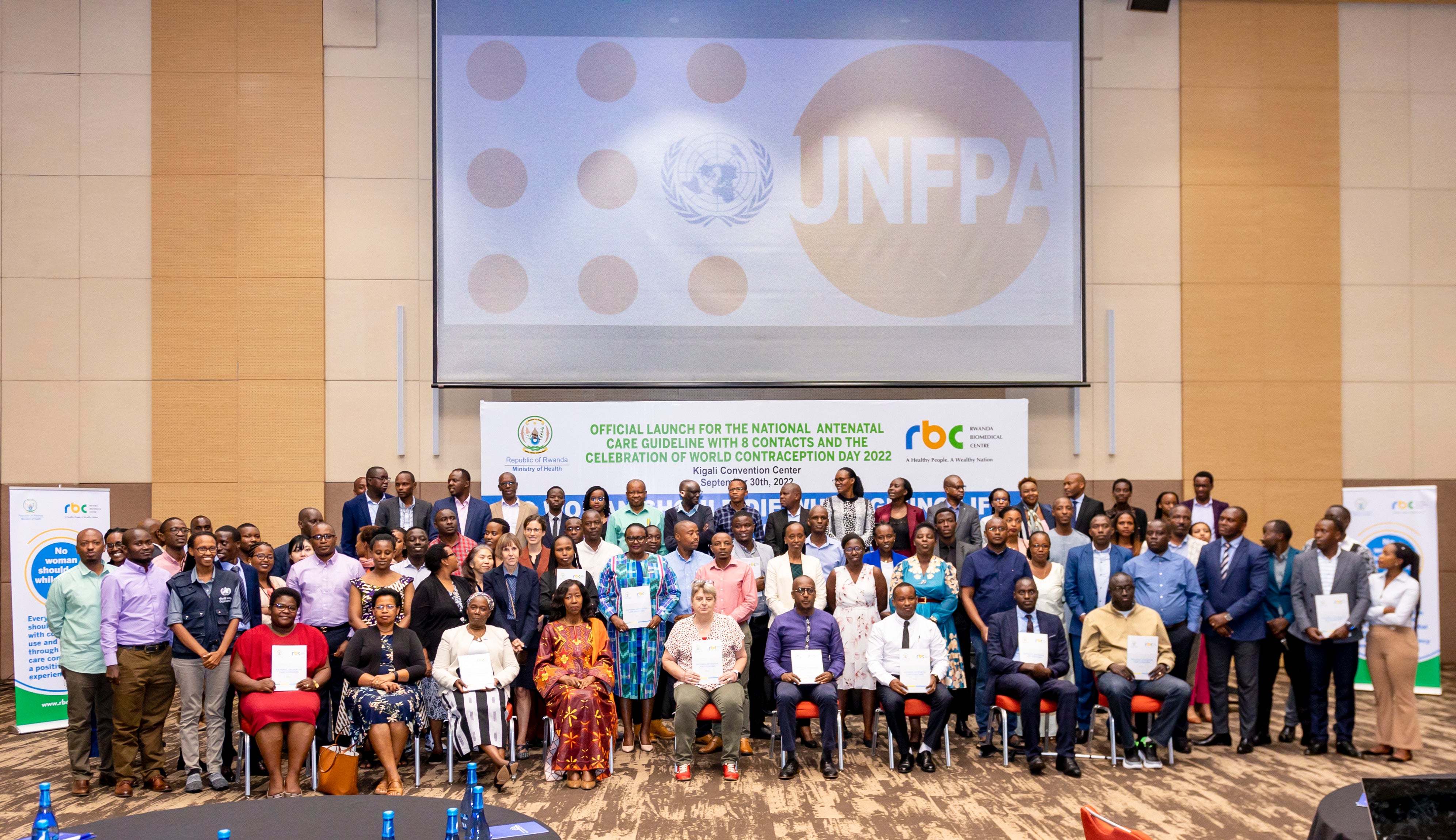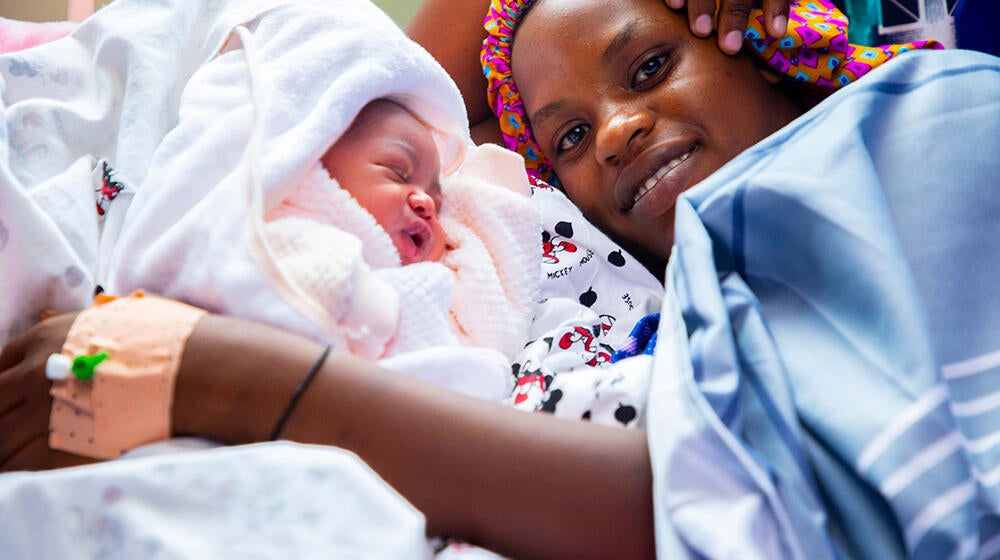The Government of Rwanda through the Ministry of Health, is making concerted efforts to scale up high impact maternal and neonatal interventions that have the potential to significantly decrease maternal, newborn and child mortality.
On 30th September, The Ministry of Health/ Rwanda Biomedical Center in collaboration with UNFPA and other partners launched the “No woman should die while giving life” campaign, also launching comprehensive guidelines on routine antenatal care (ANC) for pregnant women and adolescent girls.
Under the theme : “No woman should die while giving life: Every pregnancy should be planned with contraception use and followed through 8 antenatal care contacts for a positive pregnancy experience” , the launch event , that also celebrated the World Contraception day, served as an opportunity to inform health care providers who are responsible for providing ANC at all levels of the health care provision, about the use of these guidelines as part of their efforts to contribute to improved maternal and neonatal outcomes in Rwanda.
“Antenatal care can save lives. This is an opportunity to communicate with and support women at a critical time of their lives. As part of increasing contraception uptake, we expanded contraception services to the lowest community level to increase accessibility and use for young people and people with disability,” Said Zachee Iyakaremye, Permanent Secretary in the Ministry of Health,
The launched guidelines present a robust agenda that responds to identified areas of ANC that are critical to saving lives, improving health care utilization and quality of care. By focusing on timing and content of ANC, strategies and interventions for scaling up known effective practices in ANC are recommended with the goal of enhancing the quality of ANC services to improve maternal, fetal and newborn outcomes related to ANC in Rwanda.
“When Antenatal Care services are offered and utilized, women are able to enjoy positive pregnancies leading to safe births, healthy babies and happy families.” stated Therese KARUGWIZA, UNFPA at the launch of the campaign
“With the expansion from four to eight visits we are hoping that more pregnant women will use the services as some of the services are brought closer to the women because some visits will be performed by the nearest community health workers. “She added



